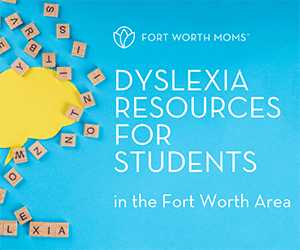When it is time for your child to enter the school years — Mother’s Day Out, preschool, elementary, secondary (okay maybe not graduate school) — you must prepare the way for them to have as successful and as safe of an experience as possible. This is true for every parent, yet for food allergy families the ins and outs of this preparation becomes more tedious. In a previous post, I listed several questions to ask the school administration and staff before your child starts school each year. (Yes, each year as policies change, teachers and staff change, and so forth.)
Building off that blog post, this article helps you navigate when to ask those questions and to whom.
Start Early!
When my daughter started kindergarten, I met the school nurse at kindergarten registration the June before the August start date. At that meeting, we set a time in early August to sit down and prepare a plan for the school year. Because many schools’ administration offices are closed for the majority of the summer, be aware of when they return to the office. Be prepared and ask for meetings as much in advance of the start of school as possible. You want to have a plan in place before the first day of school — a plan that is known by the administration and all staff members with whom your child will come in contact. The more lead time you have, the smoother the transition and the more time you have to iron out rough spots.
Roll Call
Whom exactly should you contact?
Nurse — This was my first stop as the nurse knows the most about the school’s health policies. Make friends with your school nurse! He or she will likely be your child’s advocate. He or she will also be the person administering medications and monitoring your child’s health.
Administration — Whether it is a principal, director, etc., start at the top! You want this person to know your family, know the needs of your child. This person will answer your questions about the school’s policy for prevention and reaction. The administration sets the tone for how food allergies are treated (not just medically, but socially, in the classroom, and so forth, by all staff).
Teachers — Yes, plural: Teachers. Even in most preschool environments, more than one teacher comes into contact with your child. In our case, I emailed and met with my daughter’s homeroom teacher; however, I also emailed all her “specials” teachers: music, library, PE, art, computer, science lab, playground volunteers. All teachers need to know your child has a food allergy, how to identify a reaction, and how to initiate the plan for treatment.
Counselor — Food allergy kids can sometimes feel different from other kids, be the victims of teasing and bullying, and be isolated from activities because of the allergy. Touch base with the school counselor to talk through how to help your child, how the counselor can help your child, and how the counselor plans to educate the other children on this issue.
Cafeteria Manager — No one knows what goes on in the cafeteria more than the manager! Introduce yourself, ask him or her questions about what is served, how food allergens are identified, etc. Make sure he or she knows your child on sight (even provide a photo).
District Managers — In our case, the school district is the “boss” of our local school administration. Many of the policies come from a district level. Thus, email the district dietician and heads of health services, alerting them to your child’s presence at a particular campus. Change often happens on the district level, so build those relationships early.
Parents — Last but certainly not least: Talk to the other parents about your child’s food allergy. Share the stories of exposures and treatments and how you work to keep your child safe. Many parents who do not have kids with food allergies are innocently unaware of the severity of food allergies and the care they require.
Final Tips
Create a folder of information all about your child’s food allergy, how it is triggered, how symptoms can present, and the prevention / reaction plan. Give this to your child’s homeroom teacher to leave on his or her desk for use by a substitute teacher. This is also a good idea for any substitute nurses.
Maintain an ongoing relationship with all of the parties listed above — a relationship that involves more than food allergy discussion.
Each child should have an independent health plan agreed upon by you and the administration. If ever you feel like the school is not accommodating your child’s needs in a reasonable fashion, you do have recourse in the 504 plan.
What other tips do you have for keeping food allergy kids safe at school?
The Fort Worth Moms Blog hosts 20 Neighbor Groups via Facebook, including the Fort Worth Food Allergy Moms. These groups are free to join and offer online and offline opportunities to build relationships and gain resources from other moms in the area.














Just what I needed. THANK YOU!